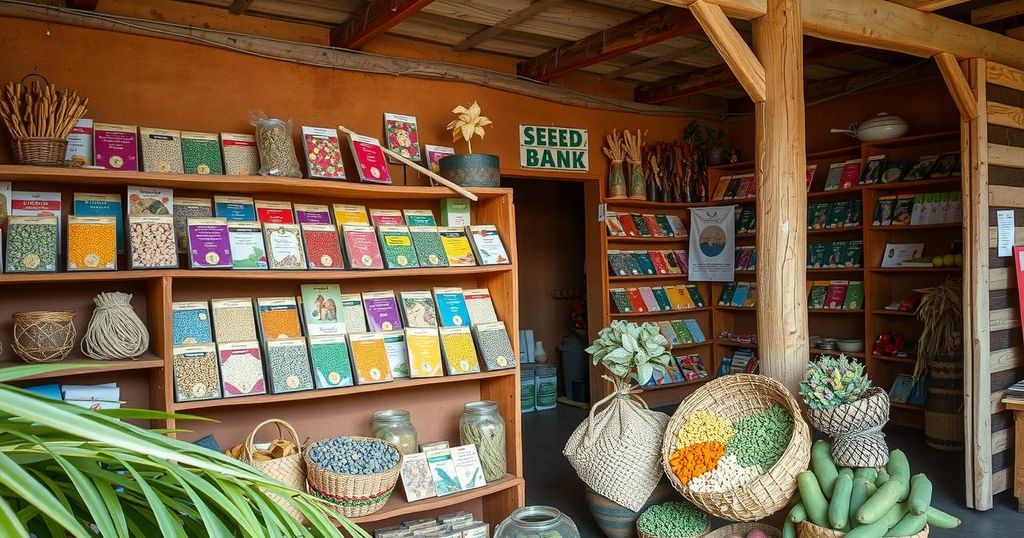Community seed banks in Zimbabwe are providing crucial support amid climate challenges, particularly in drought-stricken regions. Established to enhance agricultural resilience, these banks emphasize local crop varieties, promote biodiversity, and empower farmers to take charge of their agricultural futures despite adverse conditions, helping them mitigate the impacts of severe droughts.
In Zimbabwe, community seed banks are emerging as pivotal resources for farmers seeking to enhance climate resilience through agricultural diversity. Especially in places like Mudzi district, which suffers from ongoing dry conditions, these seed banks provide vital access to drought-tolerant local crop varieties. Established in 2017, for example, the Chimukoko seed bank is crucial for farmers whose corn crops were ravaged by a severe drought that struck last August, exacerbated by climate change and El Niño effects.
The El Niño-induced drought left millions in southern Africa needing food assistance, with Zimbabwe being particularly hard hit. While government aid helped many, some locals turned to the community seed bank to collect seeds at no cost, allowing them to plant more resilient species like millet and sorghum. The banks represent a local response to global climate challenges, offering a contrast to larger, formal seed banks. The Chimukoko facility notably supports sustainable agricultural practices by providing seed varieties more suited to local conditions and cultures.
Andrew Mushita, an agronomist with the Community Technology Development Trust (CTDT), emphasizes that community seed banks empower farmers. He pointed out, “These materials are quite key in terms of empowering local communities to produce and own the means of production.” Such ownership is crucial as it allows farmers to cultivate crops more aligned with their ecological realities without depending on often inaccessible commercial seed markets.
Furthermore, these seed banks encourage diversity among crops. Farmers often lean heavily on maize due to historical government policies, but expanding their cropping choices can buffer them against climate-induced disasters. Ronnie Vernooy, an expert with Alliance of Biodiversity International, pointed out that community seed banks have grown in acceptance and relevance over time, showing a shift in attitudes about who can successfully manage agricultural diversity.
Community seed banks in Zimbabwe offer vital support to local farmers battling climate challenges, particularly in arid regions. By promoting crop diversity and local ownership of seeds, they not only empower communities but also help preserve traditional agricultural knowledge. As demand for sustainable farming practices increases, these banks are set to play an essential role in the fight against global food insecurity and climate change.
Original Source: www.newzimbabwe.com






